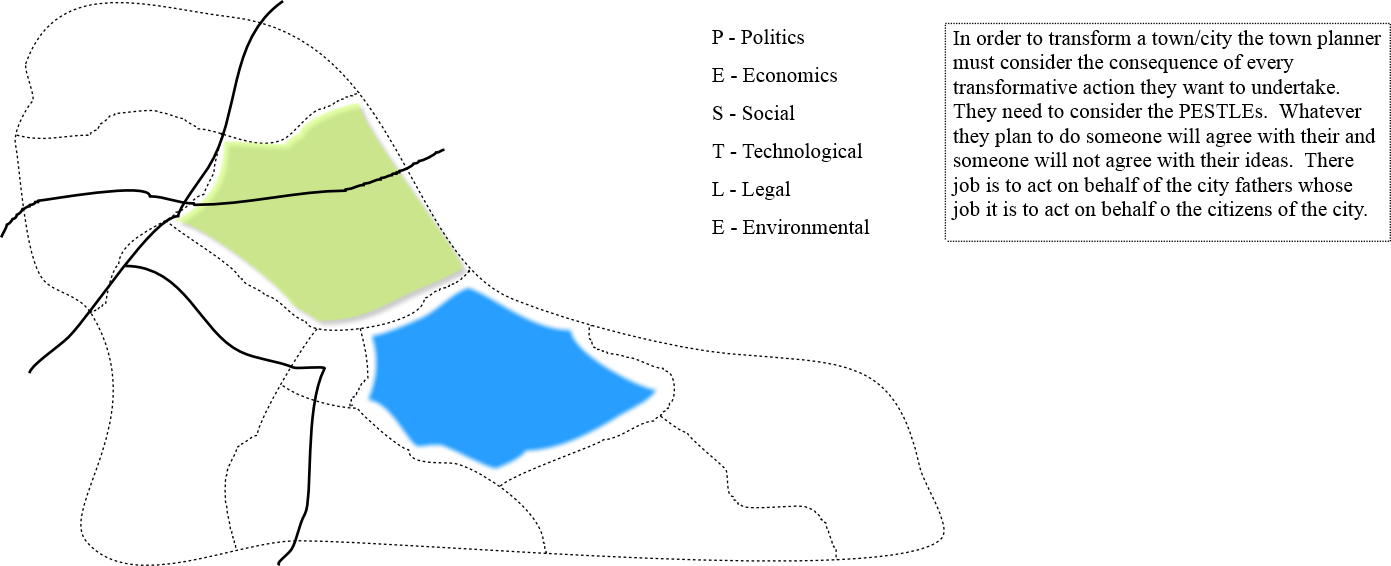EA and Town Planning
For many years EA was compared with Building Architecture but there was always some shortcoming in this analogy. Then we realised it was more akin to town planning. On so many occasions when I have given the example I am about to give below, someone in the room who was either a town planner in their past experience or who knows a town planner, immediately says YES!!!
So here we go, consider the image below of a town that needs to be transformed
As with most cities they are subdivided into zones (residential, commercial, industrial, recreational etc), shown in my model by the colour coding. So the first question is why the zones? The most obvious answer is it's easier to manage and each zone will have very specific requirements on limited resources such as gas, electricity, water, sewage etc (a small industrial zone may well use as much power as a small town). Understanding these requirements is crucial if the planners are going to design a city that will successfully expand and contract as needed as demands on it expand and contract respectively.
The town planner must also ensure some kind of consistency in the overall look and feel of the city, so there well may be a set of planning policies such as those found in cities like Pretoria in South Africa; properties cannot be taller than the height of the Jacaranda trees, or those found in the Cotswold in the UK; properties must be built using Cotswold stone, or as in Aberdeen in Scotland, properties must be built using Aberdeenshire stone, or finally the policy of Stratford Upon Avon; that no properties must be taller than the tree line of an area. These policies are designed to make these environments pleasant places to live. But what about the situation where you buy a property off-plan in a new estate with an understanding that all properties in the estate are off a similar styling, but someone on the estate has managed to get permission to build a monstrosity next door to you that can only be described as an apartment block. I'm sure you would have a few objections, but why? The problem here is that there seems to be poor governance at work.
Without good governance the above model would fall apart. Now I think we can all agree that sometimes the law is an ass, some of the decisions that are made don't make any sense from our perspective. But what is that perspective? It is taken from a narrow point within the bigger picture. Unfortunately, the law/governance isn't abut the individual but the whole, it must be seen as fair and impartial. For governance to work it must be executed on three levels
- Legislation (make the law)
- Judiciary (interpret the law on a case by case basis so as the create precedence)
- Enforcement (once a judgement has been made, it must followed, policed)
We make use of a generic governance model that must be configured to meet your own needs.
